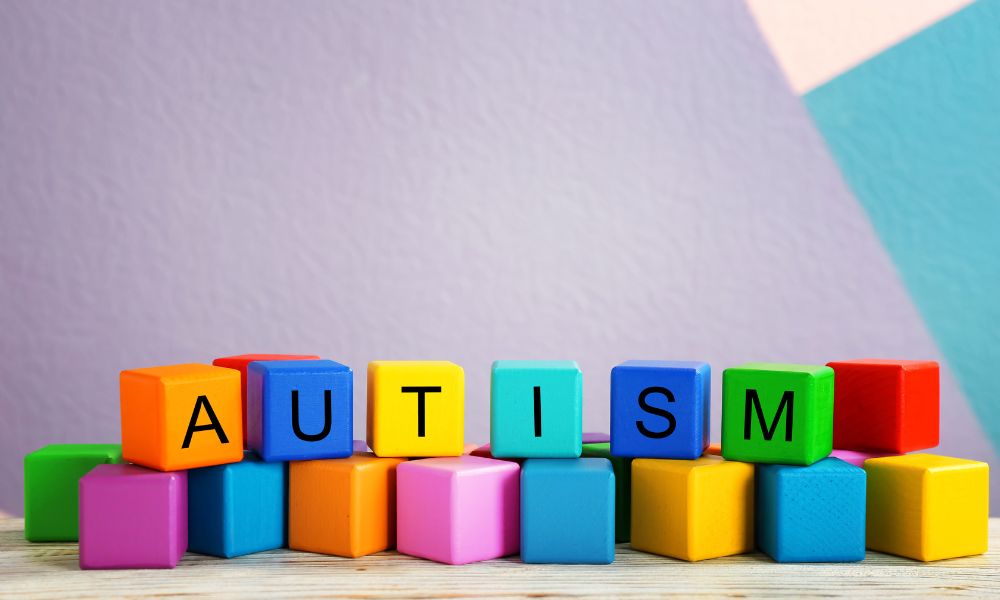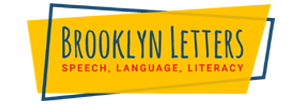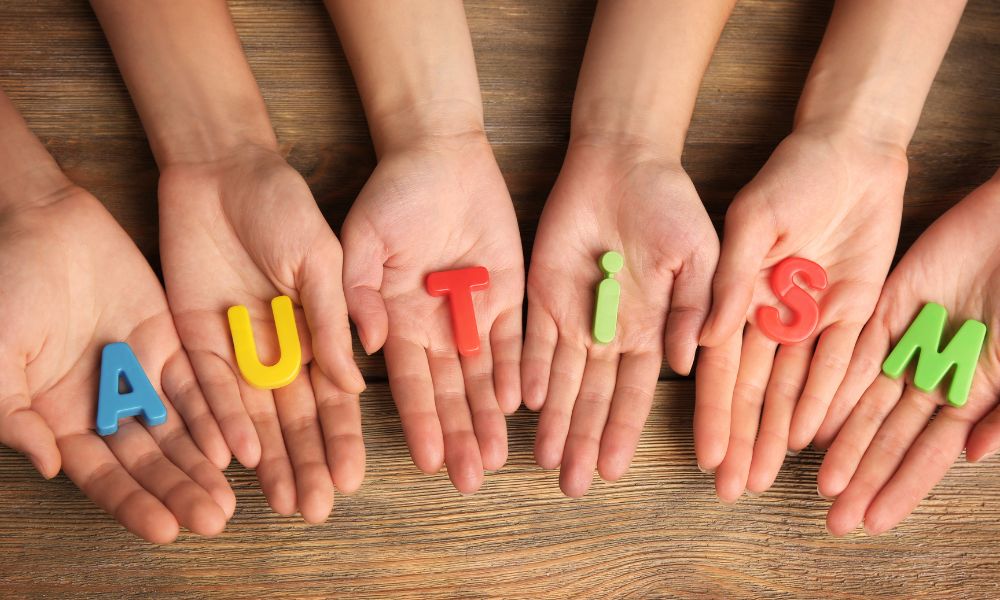Understanding the Difference Between Speech Delay and Autism

When it comes to understanding the differences between speech delay and autism, it can be difficult to know where to start. The development of speech and language skills is a milestone in a child’s life. However, when children experience delays or difficulties in speech, concerns often arise. Two commonly discussed conditions related to speech difficulties are speech delay and autism. While they may share some overlapping characteristics, it is important to understand their differences.
Speech Delay vs Autism
Speech delay and autism are two very different conditions that can affect a child’s development. Speech delay occurs when a child develops language skills more slowly than expected. They may have difficulty producing sounds, understanding what is said to them, or using language to interact with others. Autism, on the other hand, is a complicated neurological illness that affects how people perceive and interact with their environment. While speech delay and autism can affect a child’s language development, they are not the same. It is important to be aware of the signs and symptoms of both conditions to provide the best care and support for their children. Speech delays can often be helped with early intervention, but children with autism may require more specialized support.
Distinguishing Speech Delay from Autism
- Social Communication: Speech delay primarily affects language development, while autism involves significant social communication challenges, including difficulties initiating and maintaining social interactions.
- Restricted and Repetitive Behaviors: Children with autism often display repetitive behaviors, limited interests, and engage in specific routines, whereas speech delay does not typically involve such characteristics.
- Non-Verbal Communication: Autism can impact non-verbal communication skills, such as gesturing, eye contact, and understanding body language. Speech delay generally does not affect non-verbal communication skills to the same extent.
- Overall Development: Autism is a complex developmental disorder that affects multiple areas of functioning, whereas speech delay primarily affects speech and language development without significant impact on other developmental domains.
What is Considered a Speech or Language Delay?
Speech delay and autism are often confused or mistaken for one another, but it is important to note that they are two distinct conditions. Speech delay is a delay in the development of a child’s ability to use language to communicate. Speech delays can range from mild to severe and affect a child’s ability to speak, understand, read, and write. Speech delays can be caused by a variety of factors, including hearing loss, neurological disorders, and developmental delays.
Although speech delay is sometimes associated with autism spectrum disorder, it is not a symptom of autism. Speech delays may be caused by a wide range of factors, including hearing loss, neurological disorders, and developmental delays. Early intervention and therapy can improve speech delays and help a child develop language and communication skills, as well as critical thinking and problem-solving skills.

Possible Causes of Speech Delay In Children
The early development of speech and language skills in children depends on various factors, including genetics and environmental factors. A variety of different factors, such as hearing problems, neurological disorders, genetic syndromes, and intellectual disabilities, can cause speech delays in children. Other potential causes of speech delays include autism spectrum disorder, language-related learning disabilities, and speech-motor delays.
Speech delays can also be caused by inadequate exposure to language, lack of practice, genetic disposition, or the cause could be unknown.. Children with autism may experience speech delays due to difficulty with communication and language processing and social and emotional development issues. Therefore, it is important for parents to be aware of the potential causes of speech delays so that they can better understand and address their child’s individual needs.
Characteristics of Speech Delay
- Late development of speech sounds: Children with speech delays may have difficulty pronouncing certain sounds or struggle with articulation.
- Limited vocabulary: Their vocabulary may be smaller compared to peers of the same age.
- Simplified language: They may use shorter sentences or simpler grammatical structures.
- Difficulty with speech clarity: Pronunciation errors or unintelligible speech may be present.
- Comprehension skills: Children may not understand spoken language as well as peers.
- Social and play skills: Children with speech delays have less pronounced social difficulties than children with autism. Children with autism with demonstrate a repetitive or restrictive behaviors.
Signs of Speech Delay In Autistic Children
Children with autism may have difficulty producing sounds or communicating with words. They may not respond to their name or other verbal attempts to gain attention. Autistic children may not follow instructions, even when they understand what is being said. They may be slow to begin speaking or may only repeat words they hear. Children with autism may have difficulty with conversational skills, such as maintaining a back-and-forth dialogue or understanding nonverbal cues. Children with autism may be unable to label objects or express their needs. Children with autism and significant language delays may demonstrate delays using gestures before learning words.
Characteristics of Autism:
- Impairments in social interaction: Children with autism may struggle with social cues, initiating and maintaining conversations, and understanding nonverbal communication.
- Speech and language difficulties: Some children with autism may exhibit speech and language development delays, including echolalia (repeating words or phrases) or difficulty with expressive language.
- Restricted and repetitive behaviors: Autistic children often display repetitive behaviors, intense interest in specific topics, and a preference for routine.
- Sensory sensitivities: Many children with autism may have heightened sensitivities or aversions to certain sensory stimuli, such as loud noises or certain textures.
- Difficulty with social imagination: Children with autism may have challenges with imaginative play, understanding different perspectives, or predicting others’ thoughts and emotions.
Explore and understand the three levels of autism in depth (‘requiring support,’ ‘requiring substantial support,’ and ‘requiring very substantial support’). Learn the 2 useful reading comprehension interventions for children with autism spectrum disorder.

Seeking Professional Guidance
If you are concerned about your child’s speech and language development, it is crucial to consult with professionals such as speech-language pathologists or developmental pediatricians. They can conduct evaluations, assess your child’s specific strengths and challenges, and provide an accurate diagnosis or appropriate intervention strategies tailored to your child’s needs.
Conclusion
Recognizing the difference between speech delay and autism is crucial for early identification, intervention, and support for children. While speech delay primarily affects speech and language development, autism is a complex neurodevelopmental disorder encompassing broader social interaction, behavior, and communication challenges.
Seeking professional guidance and assessment is vital to ensure appropriate interventions and tailored support for each child’s unique needs. Remember, every child is unique, and early intervention can make a significant difference in promoting their optimal development and well-being.
Chat with Us Today!
Brooklyn Letters offers therapy for children and adolescents on the autism spectrum!
FREE CONSULTATION!!!
Call: (347) 394-3485, Text: (917) 426-8880
Email: [email protected]
(we respond to email right away!)
Craig Selinger
Latest posts by Craig Selinger (see all)
- NYC Middle School Transition Support Group - April 7, 2024
- Understanding Toddler Neurodevelopmental Evaluation - April 3, 2024
- Rare Diseases in New York City - February 29, 2024













